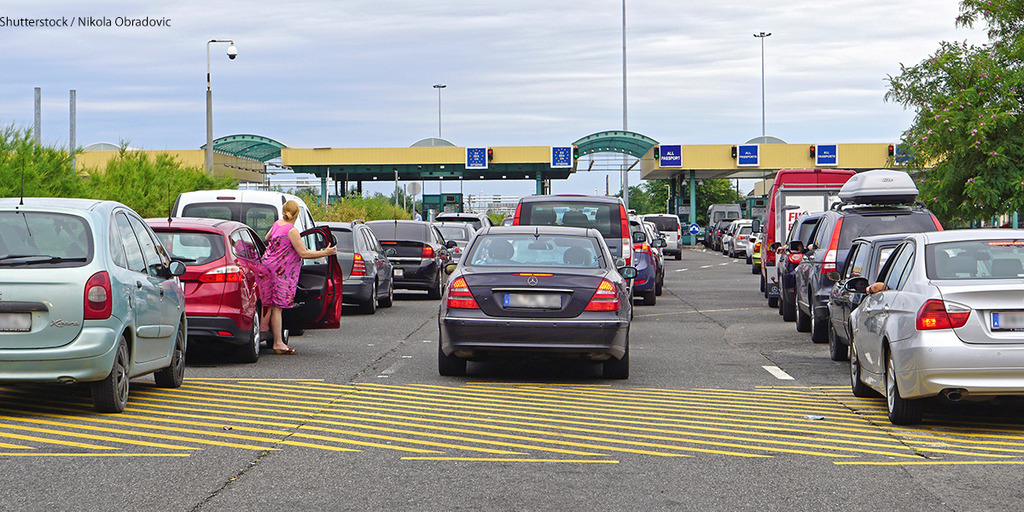A permanent reinstatement of internal border controls would have a dramatic effect on economic growth throughout Europe, causing a noticeable decline in prosperity. For Germany alone, lower growth might be expected to produce cumulated losses of at least 77 billion euros between 2016 and 2025. In a more pessimistic scenario, losses could amount to as much as 235 billion euros. For the EU as a whole, they would be likely to reach 470 billion. If Schengen were to collapse, moreover, the negative economic effects would be felt even outside of Europe. These are the findings of a recent study conducted by Prognos AG on behalf of the Bertelsmann Stiftung.
Reinstating border controls would result in higher costs and prices
Reinstating border checks would result in higher costs and prices, which would have a negative impact on Europe's economic growth. Even in an optimistic scenario, which assumes that the price of goods imported from other European countries would rise by only a moderate one percent, growth would decline substantially. Based on conservative assumptions, Germany's weaker growth would produce losses of up to 77 billion euros over the ten-year period from 2016 to 2025. France's cumulative losses would amount to 80.5 billion euros. Over ten years, the gross domestic product (GDP) of Europe as a whole would drop by some 470 billion euros. A more pessimistic scenario assumes that the price of imports would increase by three percent. Cumulated GDP losses would then total 235 billion euros in Germany, 244 billion euros in France and 1.4 trillion euros in the EU.




